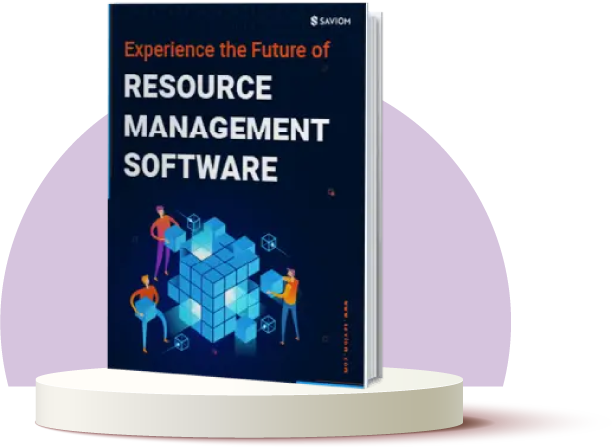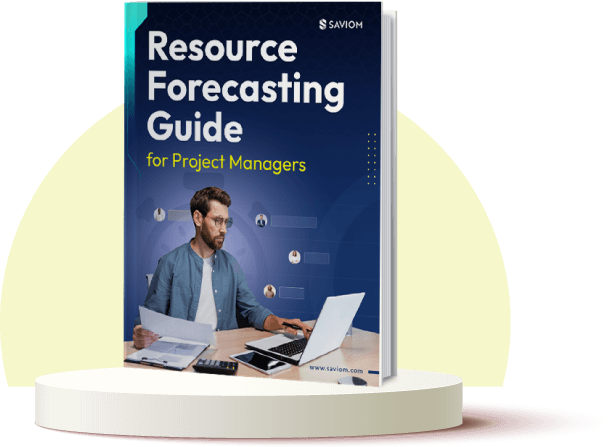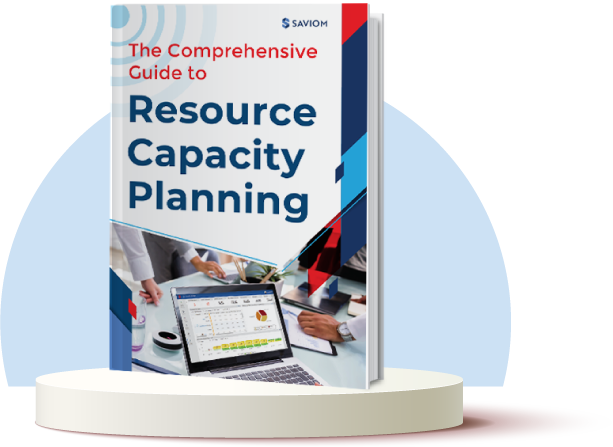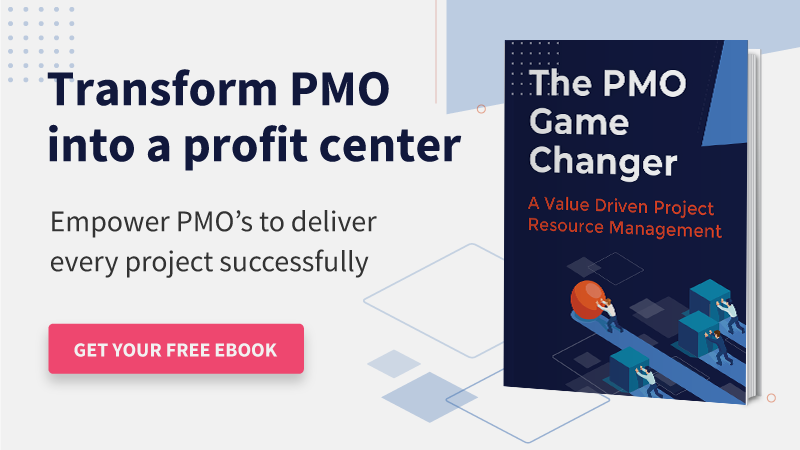Since its inception in 1956, Artificial Intelligence (AI) has been a disruptive force, revolutionizing industries with its ability to analyze massive datasets, automate repetitive tasks, and drive smarter decision-making. Once considered a futuristic concept, AI has now become an indispensable tool for business leaders transforming operations across sectors, including project management.
AI for Project Management is redefining how all projects are planned, executed, and delivered. AI’s automation, machine learning and predictive analytics improve forecasting accuracy, ensures intelligent resource allocation, improves risk management and boosts operational efficiencies.
As AI continues to evolve, organizations must stay abreast of the latest trend to stay ahead in this evolving business landscape.
In this blog, we will delve into how AI is transforming project management, its benefits, best practices, and future trends.
Let’s explore.
AI for Project Management: How is It Changing the Landscape?
Project management has always been a balancing act – juggling timelines, resources, budgets, and stakeholder expectations while mitigating risks and uncertainties. Traditionally, project managers have relied on manual processes, spreadsheets, and legacy tools to keep projects on track. However, these methods have limitations such as data overload, resource misallocation, and reactive risk management.
Despite leveraging project management software, many organizations still struggle with predictability, collaboration, and real-time decision-making. This is where AI is stepping in to revolutionize the process. AI analyzes historical project data to detect patterns of project failure and warns about risk. Moreover, it anticipates project timelines and budget overruns to help take preventive actions.
AI also helps in dynamically adjusting workload based on team capacity, preventing under/over utilization. Moreover, data analytics and automation have streamlined and optimized the Project Management Office (PMO) role. Now, PMOs leverage AI’s intelligent system to choose the best project management methodology, ensure regulatory compliance, obtain status updates, and generate a report.
Finally, as AI for project management takes over administrative work, project managers can shift their focus to cultivating strong, soft skills, leadership qualities, and business acumen, enhancing their strategic contribution to the organization.
Now that we understand the role of AI for project management, let’s explore its key benefits.
Benefits of AI for Project Management
As per PMI, “The global market of AI in project management is expected to cross $5.7 billion by 2028, indicating its increasing adoption across industries.”
With AI adoption on the rise, businesses are leveraging it to streamline project planning and execution. Here are some key benefits of using AI for project management:
Accurate Project Forecasting
AI analyzes historical data, identifies patterns, and accurately predicts future outcomes. With machine learning algorithms, project managers can assess factors such as project timelines, skill requirements, completion dates, and potential roadblocks. Thus, AI for project management enables them make data-driven decisions, set realistic expectations, and proactively address risks before they impact the project.
Better Risk Management
AI helps identify, assess, and mitigate risks by analyzing historical data, real-time inputs, and external factors impacting project progress. AI-powered risk management tools continuously monitor project performance, detect deviations, and flag potential bottlenecks before they escalate. Thus, managers can explore alternative solutions, formulate contingency plans, and prevent disruptions.
Read More: What Are Resource Risks in Project Management & How to Mitigate Them?
Automated Task Management
Manual tasks always leave room for errors, which can gravely slow down project progress. AI for project management eliminates these troubles by automating repetitive tasks such as scheduling project meetings, updating reports, and managing documentation. Project teams can, therefore, save time and focus on strategic activities rather than operational tasks.
Enhanced Decision-Making
AI makes decision-making simple yet effective by analyzing large datasets and evaluating multiple scenarios. Moreover, AI-driven dashboards and visualization tools convert complex information into easy-to-understand charts and graphs. This enables managers to gain quick insights and make informed choices, ultimately enhancing project stakeholder collaboration and improving project outcomes.
Cost Reduction
AI optimizes resource allocation by analyzing required skills and capabilities, and project budget constraints ensuring financial efficiency. Moreover, intelligent AI algorithms help track spending patterns, identify areas of cost overruns, and recommend proactive measures. In addition, AI for project management reduces manual admin tasks that help lower operational expenses and improve overall financial health.
Read More: 5 ways to Reduce Project Management Costs
We have explored the various benefits of AI for project management. Let us move on to the best practices organizations must ensure when implementing AI.
Best Practices for Implementing AI in Project Management
To maximize the benefits of project management AI, organizations can follow the below-mentioned best practices:
Define Clear Objectives & Use Cases
Organizations must outline specific goals before integrating AI for project management and identify where AI can add the most value. Whether the objective is to improve forecasting, optimize resource allocation, or automate administrative tasks, having a clear strategy ensures AI adoption aligns with business needs and delivers tangible results.
For example, if a company struggles with project delays due to inaccurate timelines, AI-powered scheduling tools can help managers predict realistic deadlines and adjust the project plan accordingly. By selecting AI solutions tailored to specific challenges, project managers can streamline workflows, enhance decision-making, and maximize efficiency.
Read More: What is a Project Plan & How to Create an Effective One?
Choose the Right AI Tools & Technologies
AI tools are not one-size-fits-all. Thus, it is important to select the right AI solution after assessing project needs and business goals. It is also important to analyze primary challenges to determine which AI-powered functionalities will deliver the most value. Moreover, the selected tool must be compatible with existing project management platforms and enterprise resource planning tools.
In addition, the tool should be intuitive, easy to use, and scalable to accommodate future business growth. For instance, a construction company managing different projects across multiple locations should choose an AI-driven project scheduling tool that can scale across multiple sites, ensuring smooth operations.
Ensure Data Quality & Accuracy
AI systems rely heavily on data to generate insights. This makes data quality a crucial factor in AI for project management. Outdated, inaccurate, and incomplete data can result in inaccurate predictions, flawed recommendations, and misguided project decisions. To prevent this, organizations must ensure that the data feeding into AI systems is clean, structured, and reliable.
Implementing data governance policies and adding comprehensive information can help ensure consistency, integrity, and accuracy. For example, a software development firm implementing AI for sprint planning should ensure that all backlog items have accurate details of effort estimates and assigned team members to avoid AI-based miscalculations in workload distributions.
Read More: How Can You Make Data-Driven Decisions with Resource Management Software?
Invest in Training & AI Adoption
Successful AI for project management implementation depends on how well teams understand, adapt, and integrate the new technology into their workflow. Even the most advanced AI tools can lead to confusion, resistance, and underutilization without proper training. Organizations should provide hands-on training and upskilling opportunities to maximize AI’s potential.
Moreover, firms can customize training based on roles. For example, project managers, designers/developers, and testers can hold separate training workshops based on their use cases. In addition, ongoing support is just as important as initial training. For this, firms can host regular AI webinars and provide on-demand AI support to troubleshoot challenges and stay updated on new features.
Track & Monitor AI Performance Regularly
Once an organization implements AI for project management, the job doesn’t end there. Just like any other tool, AI requires continuous evaluation and refinement to ensure that it is performing effectively and delivering value. To gauge AI’s effectiveness, project managers can establish key performance indicators (KPIs) that track the accuracy of AI predictions, efficiency gains, and user satisfaction.
Another thing organizations must focus on when implementing AI is its ability to evolve with time. Because business needs constantly change, rigid AI algorithms may be unable to keep up. Therefore, ensuring the chosen AI tool can handle new project demands, emerging risks, or changing workflows is crucial. This will ensure that AI continues to provide meaningful insights and help achieve project success.
Read More: 7 Critical Project Metrics that You Should Track
Address Ethical Considerations & Bias in AI
To effectively utilize AI for project management, businesses must recognize that AI is only as unbiased and accurate as the data it is trained on. This means if project management AI tools are fed with biased information, they will produce incorrect or unfair recommendations. Therefore, organizations must ensure transparency in AI algorithms and continuously monitor AI insights for potential biases.
Furthermore, managers should establish ethical guidelines to build trust in AI adoption. This includes maintaining data privacy, ensuring AI-driven decisions align with organizational values, and keeping human judgment in the loop. Regular audits will help identify biases, while clear accountability measures will keep AI transparent and reliable over time.
While AI is constantly growing, let us move on to explore what future trends organizations must look out for in 2025.
AI for Project Management: Future Trends
As per Gartner’s prediction, “By 2030, AI will perform 80% of project management tasks.”
As organizations increasingly embrace AI for project management, its role is evolving beyond data analysis and task automation. Here’s what the future holds:
Focus on Human-AI Collaboration
The future of AI for project management will emphasize a deeper and more intuitive collaboration between AI and human expertise. Advanced AI systems will dynamically adapt to individual work styles and automate project workflows based on past performance. Thus, AI will be used as intelligent assistance that will handle data-driven insights, enabling project managers to focus on strategic decision-making.
Read More: 7 Project Manager Personality Types: Which One Is Yours?
Greater Emphasis on Ethical AI Frameworks
As AI for project management becomes more integrated, organizations prioritize ethical frameworks to ensure fairness and transparency. Businesses must actively monitor AI-driven decisions, address biases, and protect data privacy to maintain trust. Moreover, clear guidelines and human oversight can help ensure AI supports project goals without compromising ethical standards.
Increased Adoption of IoT & Digital Twins
Future project management will leverage IoT sensors and digital twins to bridge the gap between physical and digital project environments. IoT devices will collect data from project sites, resources, etc., to provide regular updates on project progress. On the other hand, Digital Twins (virtual models of physical assets) will help project managers simulate different scenarios, optimize workflows, and predict issues.
Rise in Advanced NLP for Automated Reporting
Future advancements in Natural Language Processing (NLP) will automate status reporting, summarize key discussions, and highlight action items, reducing manual effort for project managers. It will also enable AI to analyze unstructured data, such as emails, meeting notes, and project reports, to extract key insights. Managers can then use this data to view project health comprehensively.
Read More: 12 Key Project Reports for Successful Project Managers
Conclusion: Are You Prepared for Embracing AI?
The future of project management is undeniably AI-driven, but the real question is – are you ready to embrace it?
While AI won’t replace human project managers, it will change how they work. Instead of getting buried under routine tasks that consume time, managers can leverage AI for better data insights, analytics, automation, and as a strategic partner. The key is to adapt, upskill, and strike the right balance between human expertise and artificial intelligence
So, are you ready to embrace AI for project management?
The Glossary
Read More: Glossary of Resource Workforce Planning, Scheduling and Management












